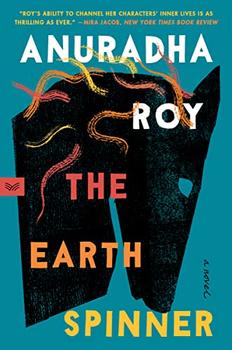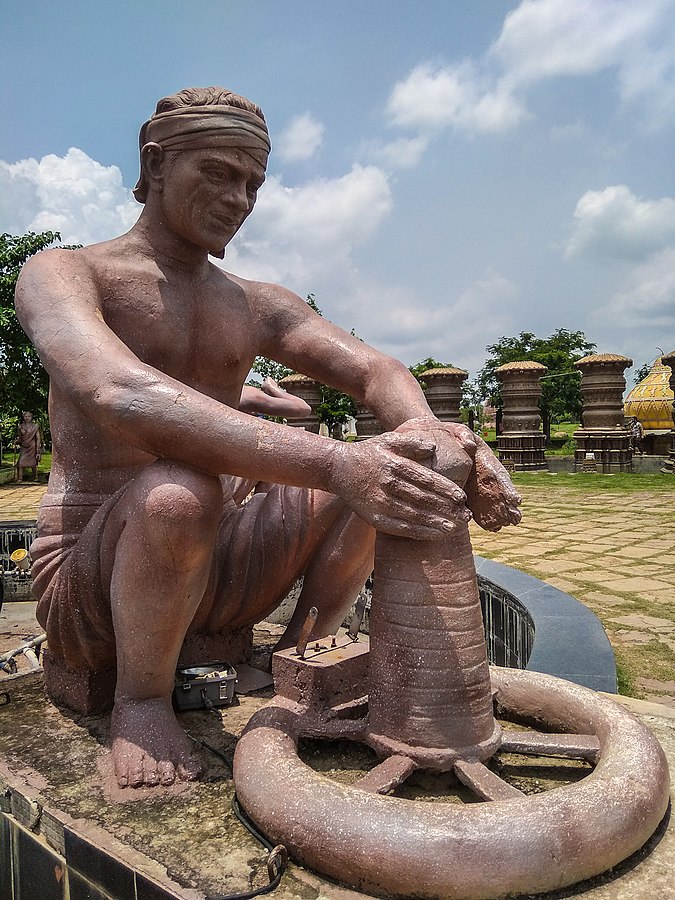Summary | Excerpt | Reviews | Beyond the Book | Read-Alikes | Genres & Themes | Author Bio

A Novel
by Anuradha RoyThis article relates to The Earthspinner
 In Anuradha Roy's The Earthspinner, one of the central characters is Elango, who, despite his college education, chooses to practice pottery like his ancestors. Elango belongs to the caste of potters known by various names including Kumhar, Kumbhar, Moolye, Odari and Kulal. As per India's caste system, since Elango was born into this community, it is socially unacceptable for him to do anything other than practice pottery.
In Anuradha Roy's The Earthspinner, one of the central characters is Elango, who, despite his college education, chooses to practice pottery like his ancestors. Elango belongs to the caste of potters known by various names including Kumhar, Kumbhar, Moolye, Odari and Kulal. As per India's caste system, since Elango was born into this community, it is socially unacceptable for him to do anything other than practice pottery.
The caste system in India is a form of organizing society with ancient origins, wherein Hindus are divided mainly into four castes: Brahmin, Kshatriya, Vaishya and Shudra, in descending order of hierarchy. These are then divided into thousands of subgroups and subcastes. A fifth caste lying outside this system is made up of the former "untouchables," who now call themselves Dalits. Determined by birth and inescapable thenceforth, caste forms the backbone of Hindu cultural life, seeping through every aspect of people's religious and social existence. It dictates who you can marry, how you can worship, what you can eat and drink and what kind of occupation you should have.
For instance, as intellectuals, the Brahmins have the designated role of teaching, while the Shudras are ordained to engage in arts and handicrafts that have practical utility — such as pottery.
The Kumhars, therefore, belong to the lower end of the hierarchy. Spread all across the Indian subcontinent, although more commonly found in the southern part of India (where The Earthspinner is set), the potter community is not homogenous; there are multiple subgroups based on location, what sort of pottery they make and other cultural factors.
Since earthenware utensils are no longer popularly used for cooking, many potters now make mostly terracotta tiles, flower vases, shrines, plant tumblers and pots used to store water. The festival season — from Navratri to Diwali — proves to be the most fruitful for business. For instance, diyas (lamps) are in high demand during Diwali, the Hindu festival of lights.
In earlier times, the entire family would help out with this ancestral occupation, with each member having a separate role to play. But much like Elango's father, many potters today seek upward social mobility for their children through the means of education so that they can have more options for their livelihood. Even then, people are generally unable to avoid caste-based discrimination, something that is still rampant in India. Discriminating against someone on the basis of caste is against the law, but caste-based atrocities and discrimination occur in all aspects of life, including in schools at work, and even in the American tech industry.
However, with the rise of urbanization, modern education and a growing political consciousness influenced by the work of the Dalit intellectual, activist and social reformer Dr. B.R. Ambedkar, there has been a shift in the public consciousness to become more aware of caste hierarchies and discrimination. As the law minister of India right after Independence, Ambedkar was instrumental in drafting the Constitution of India, and wrote seminal works such as The Annihilation of Caste that directly criticized the system.
Kumhar sculpture at Purkhouti Muktangan in Raipur, courtesy of Wikimedia Commons
Filed under Places, Cultures & Identities
![]() This "beyond the book article" relates to The Earthspinner. It originally ran in September 2022 and has been updated for the
July 2023 paperback edition.
Go to magazine.
This "beyond the book article" relates to The Earthspinner. It originally ran in September 2022 and has been updated for the
July 2023 paperback edition.
Go to magazine.
Your guide toexceptional books
BookBrowse seeks out and recommends the best in contemporary fiction and nonfiction—books that not only engage and entertain but also deepen our understanding of ourselves and the world around us.